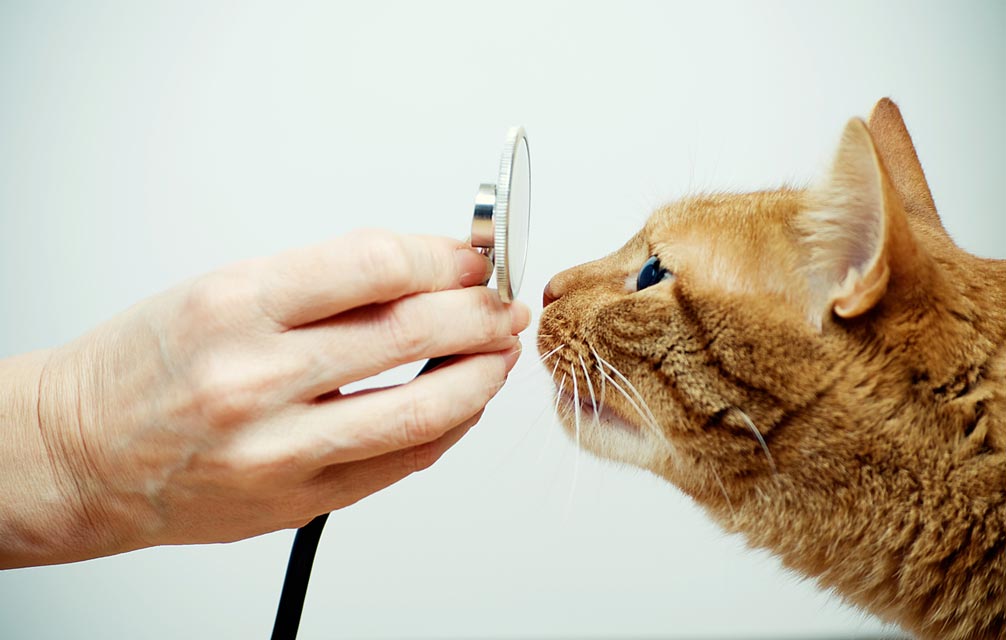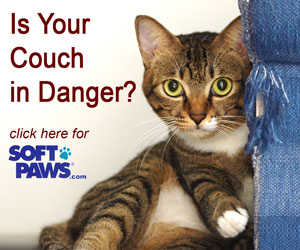Cat Hearts: The Feline Cardiovascular System

For every beat our human heart takes, a typical cat's heart beats three times. That's a lot of hard work! This little muscular organ works 24/7 to take oxygen-rich blood and send it all around the body and then send the oxygen-depleted blood back through the lung fields to recharge again. The circulation cycle then starts all over.
Components of the Cat Cardiovascular System
A cat's heart and blood vessels, including arteries, capillaries, and veins, are finely-tuned to control the amount of blood circulating in the body at any one time. Also closely controlled are the blood plasma contents including sugar, hormones, salts, acidity, and concentration. Blood pressure is another component of a healthy cardiovascular system that requires constant monitoring by the body. Considering all of the delicate nerve signals, fine coordination of muscle contractions, and hormonal messages needed to keep everything working just right, there are surprisingly few problems, but heart disease does occur in cats.
Signs of Heart Problems in Cats
Cats are very good at hiding illnesses. This can be a challenge when it comes to diagnosing feline heart conditions. Sometimes, a heart problem may go unnoticed at home until it is in the advanced stages, a complication such as a thromboembolism occurs, or the cat experiences sudden death. However some signs of heart disease that may be present include:
- Weakness
- Decreased appetite
- Weight loss
- Panting
- Coughing
- Exercise intolerance
- Collapse
Diagnosis of Feline Heart Conditions
Cats are great at hiding sickness, and there are sometimes very few or no noticeable signs of heart disease. Therefore, it is extremely important to take your cat in for regular professional health examinations. Sometimes even when a stethoscope is used to listen, a cat with heart disease will seem normal, but there are times when a new heart murmur is noticed during the physical examination, and that can tip us off to an emerging problem. If heart disease is suspected, the following tests can all help to identify the type and determine how advanced it is.
- Echocardiogram (especially 2-D)
- X-ray imaging
- Electrocardiogram (ECG)
- Heartworm test
- Complete blood count
- Blood chemistry levels
- Hormone tests
Types of Heart Disease in Cats
Cats can develop many types of heart and circulatory problems, but malformations at birth, or congenital diseases, are less common in cats than in dogs. In young kittens, sometimes we hear murmurs that are benign, or harmless. This is due to a normal heart producing a bit of turbulence because it is beating with good strength and the body wall is thin, so we hear the swooshing noises more easily than in the more mature cat. These murmurs will disappear with age.
The most common heart disease in cats is hypertrophic cardiomyopathy. This is a condition in which the heart muscle becomes thickened and isn't able to pump effectively. It can lead to heart failure, the situation in which the heart can't keep up with the oxygen requirements of the body.
You May Also Like These Articles:
Hypertrophic Cardiomyopathy HCM in cats
Cats Snoring: Normal or Abnormal?
Notice: Ask-a-Vet is an affiliated service for those who wish to speak with a veterinary professional about their pet's specific condition. Initially, a bot will ask questions to determine the general nature of your concern. Then, you will be transferred to a human. There is a charge for the service if you choose to connect to a veterinarian. Ask-a-Vet is not manned by the staff or owners of CatHealth.com, and the advice given should not delay or replace a visit to your veterinarian.





